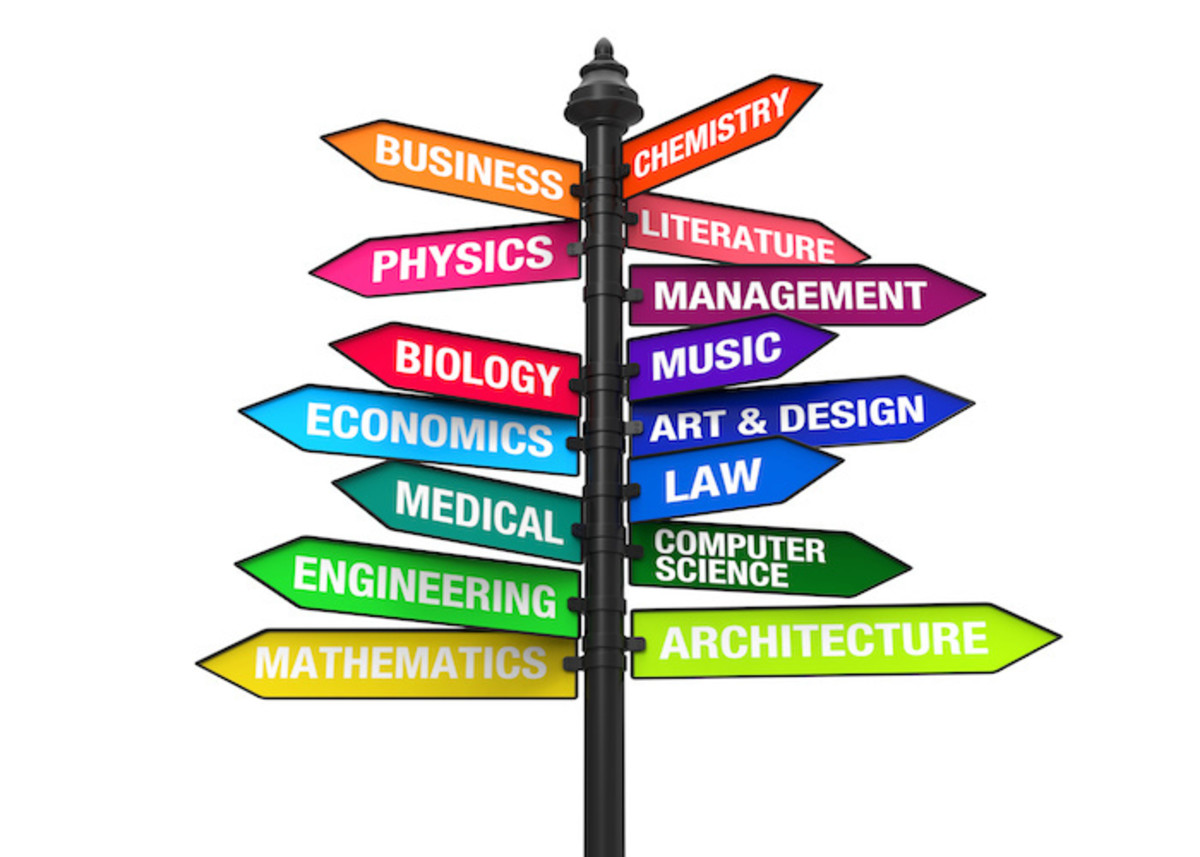Major in Communication for Future Career Success

Have you been thinking about majoring in communication but not quite sure if the field is right for you? Are you undecided about your major and exploring your options? Or maybe you are currently majoring in Communication but undecided about your future career? Checking out reasons you should major in Communication, below including what you can do with the major and what to expect after graduation.
Years ago, the Communications major (or any major in the Humanities for that matter) may not have been considered as “prestigious” or “worthy” as other fields of study; but with our world of information technology and social media, majoring in Communications opens up a world of future career opportunities.
Communication is broad enough to open worlds of options...
Just look at all the different areas you can concentrate on:

-
Organizational Communications – the study of communication within organizational context
-
Mass Media – the study of media relations and broadcasting
-
Public Relations – the study of managing corporate brand standards and image
-
Corporate Communications – the study of business communications
-
Film Studies – the study of the history of film
-
Multimedia Journalism – the study of journalism
-
Theatre Arts – the study of theater, acting, and behind the scenes
-
Social Media Studies – the study of SCO, social media, internet marketing, etc.
-
Marketing – the study of sales and business marketing
…but narrow enough to decide on a career path.
Once you choose your area of concentration, you can start to carve out your future career aspirations. Just check out some potential jobs that will be a great fit after graduation, below.

-
Communication Specialist – work for a business and plan their communication strategy
-
Corporate Communications Professional – manage communications for a large corporation
-
Journalist – become a broadcast journalist and work for a news station
-
Media Professional – work as a member of the mass media
-
Public Relations Specialist – managing the messaging that goes out on behalf of a company
-
Social Media Strategist – manage a company’s social media strategy
-
Marketing Professional – develop a marketing strategy for companies to grow their business
-
Nonprofit employee – work for a nonprofit organization in different capacities
-
Online content specialist – write content for company websites
-
Fundraiser – raise money and write grants for causes, organizations, or nonprofits
-
Broadcasting – become a TV or radio broadcaster
-
Copywriter – write copy for brochures, marketing materials, advertisements, etc.
-
HR Professional – use your communication skills to work in Human Resources
-
Admissions Representative – recruit college students at a local university
-
Customer Service Representative – put your communication skills to practical use as a CSR
The Communication major pairs well with other fields of study
One of the great advantages of studying Communication, is that it pairs very well with other fields of study and provides a great opportunity to double major or add a minor to compliment your study or future career goals.

-
Do you want to work in an international business capacity? Consider pairing Communication with a double major or minor in a foreign language.
- Hoping to become a teacher or work in the arts? Add in some Theatre Arts or English classes to your curriculum.
- Want to run your own business one day or develop a start-up? Pair Communication with a Business major or minor.
Are you currently in college?
-
Want to work in Marketing? Add a minor in Social Media or Public Relations.
The combinations are endless! One thing is for sure – no matter what career you choose in the future, having great communication skills and a strong background actually studying the field is a prized skillset valued by almost all employers! Open up any newspaper and read through the job listings – almost every single one will require that the right candidate have strong communication skills.
Future employers value well-rounded employees
Apart from most all employers valuing strong oral and written communication skills, many employers understand the value of employees having a well-rounded background and rich course history in their educational experiences.
Degrees in the Humanities, like Communication, offer the opportunity for students to not only learn how to effectively communicate, but also the history and culture behind it as well as a breadth of other subjects, which you can play up to your advantage on future resumes.
Learn more about being a Communication Major
Making your degree work for you
Not matter what concentration you choose to focus on (i.e. media, PR, marketing, broadcasting, etc.), getting the most out of your Communication major during your college years will only prove to serve you well in your future career.

During college, get involved! Join groups, find a mentor, take classes that will support your future career goals so that you don’t graduate wonder what you’re going to do now.
Above all, seek out internship opportunities during your last couple years of college. It will help you narrow your focus and decide if the concentration you are studying is what you will be satisfied doing after graduation.
Celebs who made the most of their Communications major:
-
Carrie Underwood – Mass Communications major
-
Spike Lee – Television, Mass Communication, Film major
-
James Gandolfini – Communication major
-
Connie Chung – Journalism major
-
Matt Lauer – Media Arts major
-
Matthew McConaughey – Communication major
-
Steven Spielberg – Film and Electronic Arts major
And the list goes on and on!! Could you be the next Denzel Washington or Brad Pitt?! (Both Communication majors, by the way!)
How I made my Communication major work for me
As a student, I completed a general major in Communication Studies and added a double major in Spanish to compliment it. I can confidently say that my Communication major has served me well and opened up several doors since graduation.

After graduating, I taught Spanish for a year at a language immersion program where intercultural communication skills were honed and developed.
After that, I completed a 1 year grant program teaching Spanish in a bilingual school in Spain. Needless to say, courses in intercultural communication and learning how to be open, honest, straightforward and effective in my communication style were skills required daily.
After that I worked in call centers as a Customer Service Representative which I credit my degree in Communication for landing the jobs.
It was those Customer Service Representative jobs that allowed me to land my current position as a Communications Specialist working for one of the largest businesses in the US and internationally.
Some things I do in my current role as a Communications Specialist:
-
Plan communication strategy for projects
-
Write messaging and content for internal communications initiatives
-
Collaborate with leadership to draft and release announcements on their behalf
-
Create and publish a monthly internal newsletter
-
Manage a variety of company templates and communications resources
-
Ensure all materials follow brand standards prior to distribution
-
Act as the central point of contact for all released communications
-
And more!
Not matter what concentration you choose, pursuing a degree in Communication is sure to open up new doors and a world full of opportunity during your college career and for years to come.
Did you graduate with a degree in Communication? What are you currently doing in your career? Share your college and career experiences in the comments!








